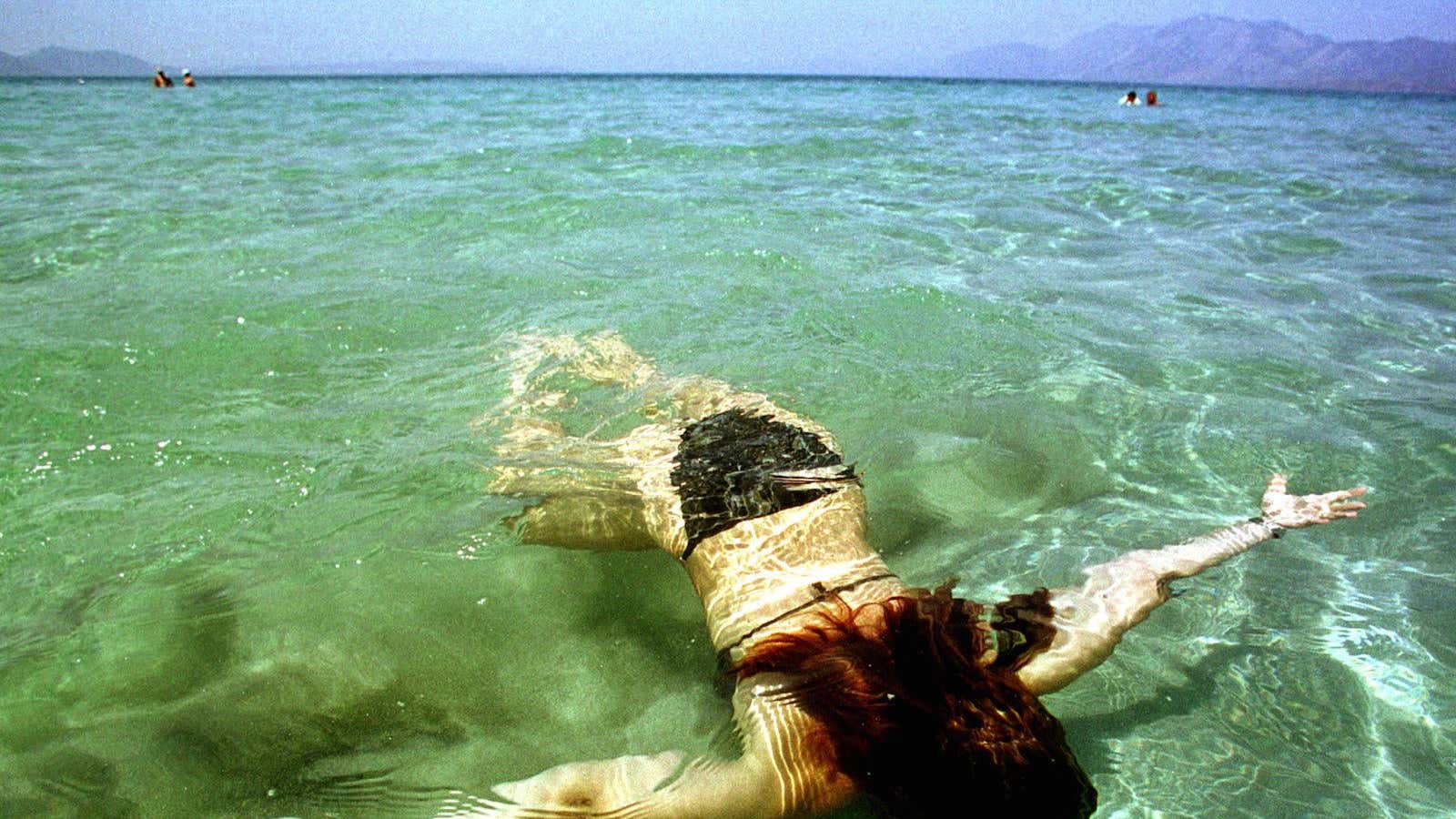Are there any signs of the Greek financial crisis on Rhodes’ sandy beaches or in the island’s medieval city? Any queues of pensioners at ATMs or street protests against the new bailout agreement? Spend a day (and a night) at one of Greece’s most popular vacation destinations and you’ll see that tourism is largely unaffected by the negative headlines.
Airplanes land so frequently on Rhodes that there always seems to be one on the horizon and hotels are packed with thousands of visitors who have come to discover secluded coves, historical monuments, and to enjoy the vibrant nightlife.
Most tourists have been advised to bring plenty of cash with them, as well as credit and debit cards so they have an alternative way for paying for goods and services, but business goes on as usual on Rhodes, undisturbed by the gloomy reports in the Greek and foreign media.
Tourism is the lifeblood of Greece’s economy, since it has no heavy industry or manufacturing. According to the World Travel & Tourism Council (WTTC), in 2014 the indirect contribution of travel and tourism was 29.4 billion euros, or 17.3% of GDP, with 700,000 jobs indirectly supported by the industry.
The indirect contribution of tourism to GDP was forecast to rise by 3.2% in 2015, but bookings from Greece and the international market posted a sharp decline after temporary capital controls were put in place on June 29. But after the announcement of the third bailout package—worth up to 86 billion euros—the bookings appear to have rebounded.
“Greece’s tourist industry is resilient. Foreign bookings started to recover. However domestic tourism has suffered a major blow in early July. Now we are in a satisfactory level and we are hoping for a further improvement in August,” Dimitris Lutat, the owner of Travelcraft tourist agency, told Quartz.
Still, he added, many businesses in the tourism sector are worried VAT increases made as part of the bailout deal will continue to drive tourists away.
Mary Kampouropoulou, owner of the AquaGrand in Lindos, a new 5-star, adults-only luxury resort and spa, told Quartz that while she had some cancellations earlier in July, her business is almost immune to the crisis because it depends on foreign visitors.
“Holiday bookings on some of the Greek islands were down by 30% after the announcement of capital controls, a decision that mainly affects Greek holiday makers,” she explained. “However, Mykonos, Santorini and Rhodes did not suffer too much because most of the tourists are foreigners that come here with their wallets stuffed with euros. We have exactly the same number of tourists as last year.”
“They come to the island on direct charter flights from the UK, Germany and Amsterdam, bypassing Athens,” she added. “The Aegean Sea is like a buffer zone that protects these Greek beaches and monuments from the political instability and economic recession.”
“We booked for a week-long holiday on Rhodes, and we are very happy to be here,” Sabbah Yaacov, an Israeli tourist staying at the Rodos Palace, told Quartz. “Did we have second thoughts? Not really. We live in Tel Aviv in Israel and are not easily influenced by negative press.”
Solidarity is at the heart of Francesca Gualandris’s trip to Greece. The 30-year-old Italian teacher from Bergamo told Quartz: “Ιf we believe in Europe and the EU, we need to support Greece. My mother and I chose Greek islands for our summer vacations because we want to support the economy.”
While tensions between Greece and Germany might cause some German tourists to rethink their vacations to Rhodes, Thomas Muller, a 50-year-old Berliner, is not one of them. He returned to Rhodes this summer for his third trip to the island. “Ι know that many Germans fear what kind of reception they would get in Greece,” Muller told Quartz.
“I have had many discussions with taxi drivers and shop clerks, with people working in restaurants and bars. They don’t like [German Chancellor Angela] Merkel or [Finance Minister Wolfgang] Schaeuble but have absolutely no problem with me or my family. Greeks are political animals, but they have also known the art of accommodating foreigners since ancient times,” he said.
